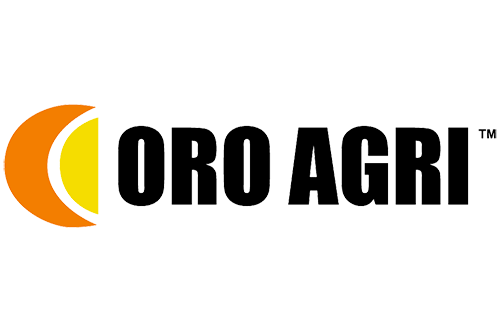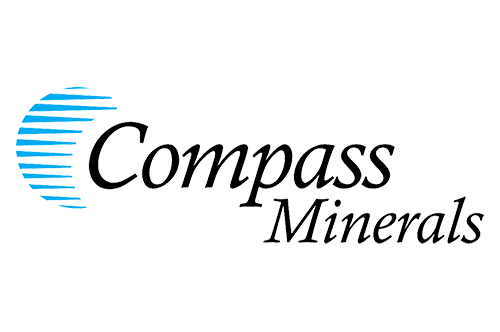Out at Mama Tee’s Farm, rain is falling percussively on the greenhouse while chickens are pecking apple worm maggots from the ground around the orchard. Carrie Sendak is finished milking the goats and is tending to the vegetables.
Three years ago, Sendak ventured out here to the outskirts of Willamina, in the eastern foot hills of the Oregon Coast range, a single woman on leased land, her sights set on diversified vegetable production.
She started out alone but with a lifetime of experience to put into action. Her farm, Mama Tee’s (named after her grandmother), had a previous incarnation in Portland, leasing backyards to farm in the neighborhoods of Cully, Parkrose and Brentwood/Darlington. Now in the sticks, she could put all her land skills into practice together.
Getting hooked up with the landowners, who want their property managed as an agricultural land trust, allowed her a 10-year lease and the stability to invest in the site. Sendak recalled that, “I was working as a watershed biologist, so I had saved up money to start the farm, and that helped. The farm pays for itself, but it’s really hard to get me paid, so having that reserve really helps.” Leasing keeps her out of serious debt, a major pitfall for the majority of beginning farmers.
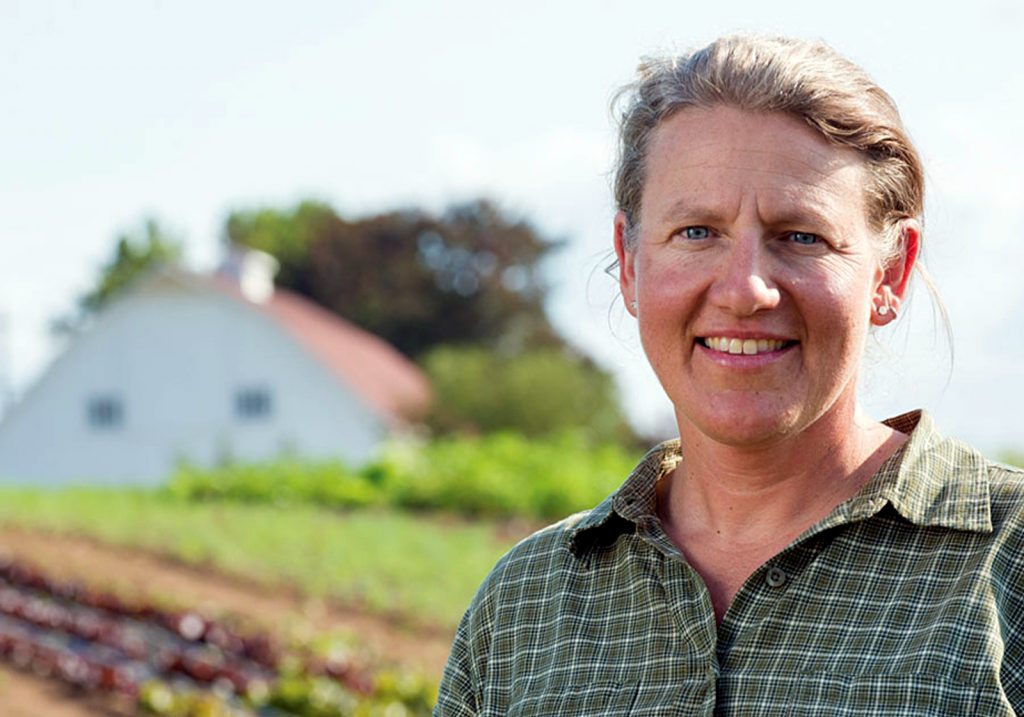
Sendak never thought of herself challenged by farming as a single woman, only by going it alone. “Being a single person starting a farm is very difficult. As a kid, I was always taught that my gender doesn’t matter, so I just had that mind-set…I never let that stop me.”
“I think the majority of the United States still see the man as the primary manager of the farm and all the physical labor that goes with it. That can be a difficult stigmatism to break for women. But, in this area, I don’t see that to be the case. I actually know more woman running farms than men.”
Having a good community really helps, “I have really felt supported being a single woman starting the farm in Northwest Oregon. For inspiration, there’s Laura Masterson from 47th Ave Farm. Closer in, my friend and neighbor, Susan Richman, is building her farm as well, about a mile and a half away. She owns Belle Mare Farm and is a grain farmer and a teamster who uses horses to tend the fields. That is only the tip of the iceberg when it comes to a good network of support around this area.”
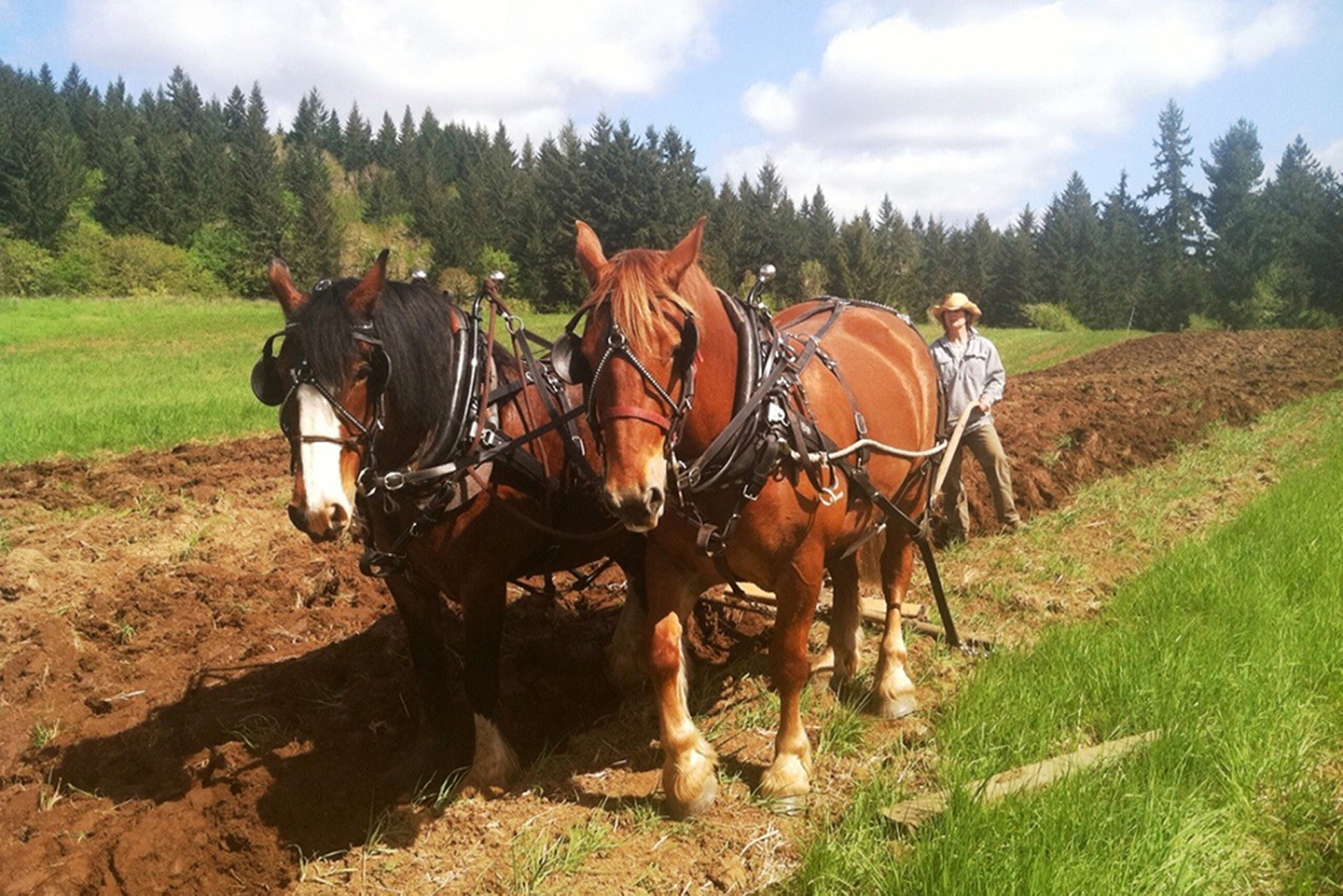
Her partner PJ joined her farm operations in 2014. “He is much more focused on the animals, which is perfect because it balances out the workload somewhat. He is much more mechanical than I, so that works out as well.” In the shadows of an open barn, PJ has disassembled their brush hog attachment, trying to repair it. He has an easy manner and a Louisiana drawl.
“Now,” she says, “the biggest challenge is keeping it going. It’s been slow in the sense that we can only do so much.” She admits, marketing isn’t her strongest skill. “You want slow food? Invest in slow farming,” she says.
The farm infrastructure is impressive for such a small operation. There’s the 109’–long high tunnel that the Natural Resources Conservation Service helped her finance, and the greenhouse that she inherited with the property. Down in the lower fields, a 10′ high deer fence has gone up around the two acres of south-facing vegetable fields.
“The landowners have been supportive,” she says gesturing towards the facing woodland, “These trees really needed to be thinned. I know about ecologically sound forest management, so we went in there and felled a few smaller trees, skinned them and used them as fence posts. All the while, opening up an unnaturally crowded Doug fir stand.”
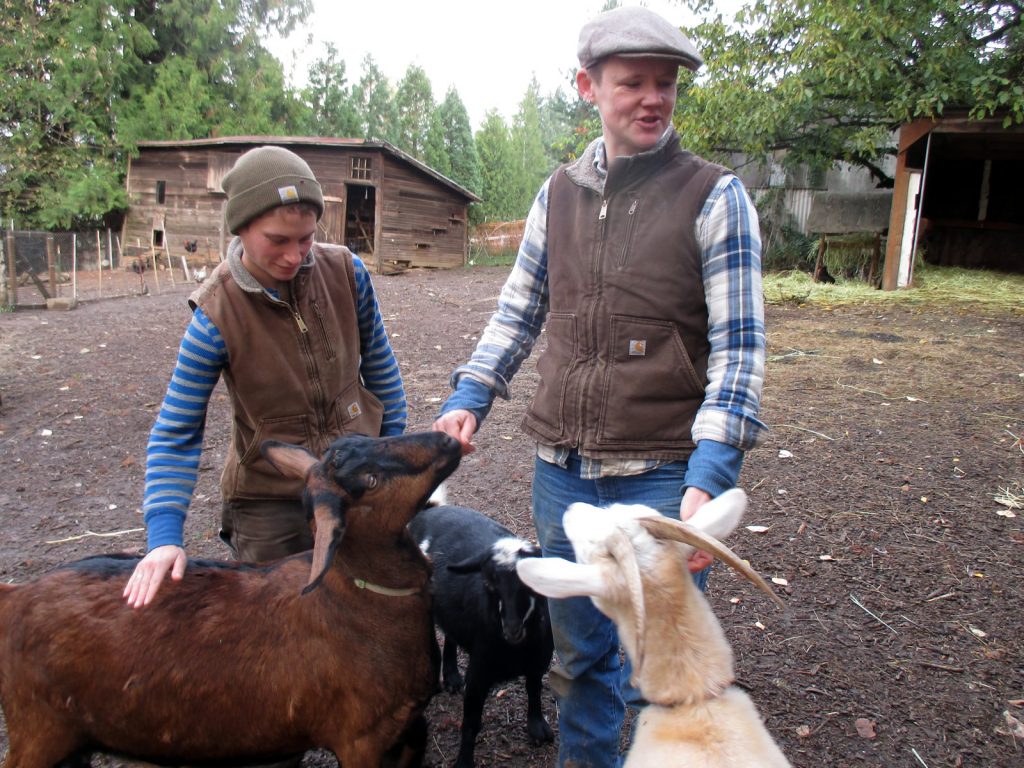
“We only have a BCS walk–behind tractor, so we don’t take the time to mow everything, which means we have numerous weed and pest issues. But we grow over 50 different kinds of vegetables, so I hedge my bets.”
Mama Tee’s first priority is the CSA operation, but it also has the high-value and specialty market dialed in. They sell produce to Peter’s Bar and Grill in NE Portland and to Hearth and Table in Lincoln City. They sell produce to Brietenbush Hot Springs resort in the Cascades, while servicing the Neskowin Farmers Market on the North Coast. They operate an on-farm stand as well.
All in all, Mama Tee’s is part of a vibrant community–a network of small farmers redefining the countryside in this area known for family farms, and an imposing sawmill.
“There is another farm down the street we work with called C&K Farms. They raise rabbits, and he is a master baker. We added a CSA meat share this year with our pigs, and they supplied rabbits, and he also offered a bread share; so we had options for vegetables, meat, eggs, preserves and bread. This year we had 24 vegetable shares, but with the other options, it was up to 59. All those are different prices. I enjoy working cooperatively with other farms to increase the options to our CSA members and community.
“I really love growing vegetables and managing the land as its own productive ecosystem, integrating livestock and perennials to diversify and increase soil and land health. Financially, you get the biggest bang for your buck if you can grow organically and grow diverse as well. That’s where I spend the most of my focus.”

